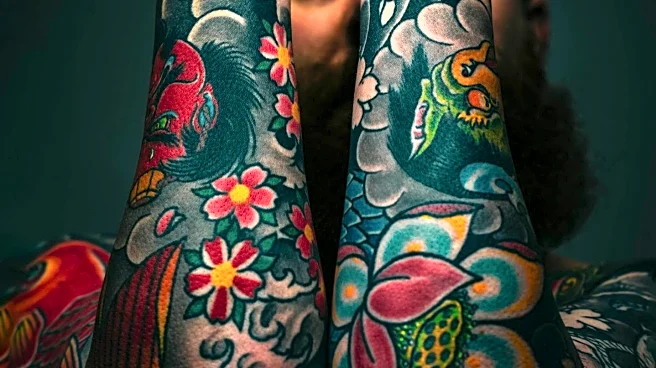What's Happening?
South Korea has passed a new law legalizing tattooing, allowing artists to operate openly after years of working underground. Previously, tattooing by nonmedical personnel was illegal, punishable by fines and imprisonment. The new Tattooist Act, set to take effect after a two-year grace period, requires tattooists to be trained, pass an exam, and obtain a license. This change comes after significant advocacy from artists like Kim Do Yoon, who have gained international recognition despite domestic legal challenges.
Why It's Important?
The legalization of tattooing in South Korea marks a significant cultural shift, potentially impacting the global tattoo industry. By legitimizing the practice, South Korea may see an increase in artistic innovation and economic growth within the sector. This change also reflects broader societal acceptance of tattoos, which have historically been stigmatized. The new law could influence other countries with similar restrictions to reconsider their policies.
What's Next?
As the Tattooist Act is implemented, South Korean tattoo artists will likely experience increased opportunities for collaboration and growth. The law may also prompt discussions about the regulation of other artistic practices. Stakeholders, including the Korean Medical Association, may continue to debate the implications of the law, particularly concerning health and safety standards.
Beyond the Headlines
The legalization of tattooing in South Korea may contribute to a broader cultural acceptance of body art, challenging traditional views and potentially influencing fashion and beauty trends. This shift could also impact the perception of tattoos in other conservative societies, encouraging a reevaluation of cultural norms.










